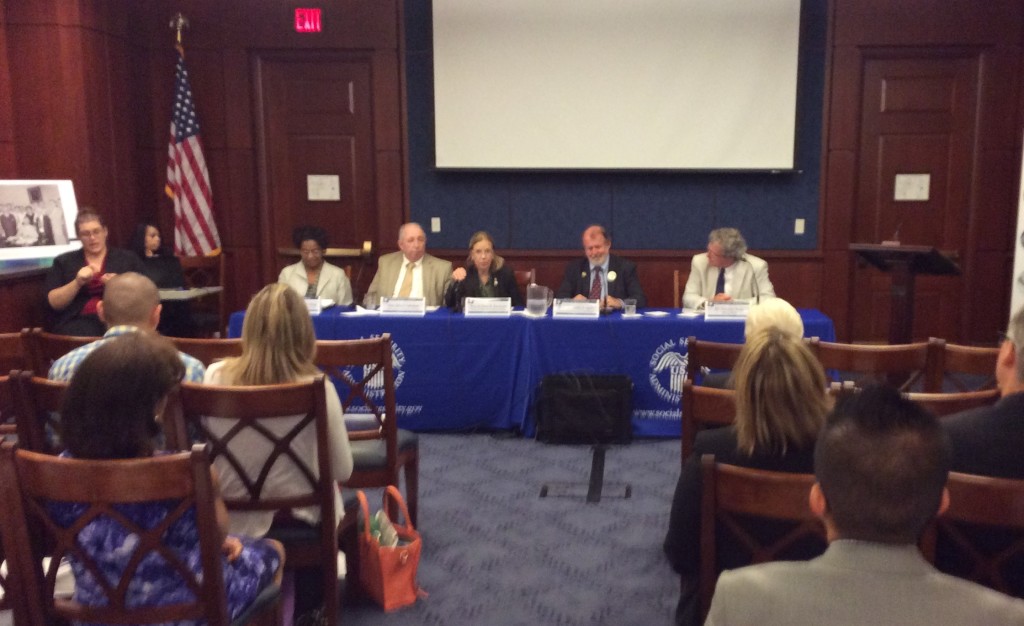One of the things I’ve found as I tell people that I work on aging policy, is that even though the issues are complex and the policies are never clear-cut, people connect to them in a very personal way. There’s almost always a reflection about someone’s own aging process, or a caregiving story about a loved one, but it invariably hits home in a particular way. My own family has not often understood the advocacy work I do, but when a family member approached me and, in her mix of English and Tagalog, thanked me for her Social Security, I knew it was personal for her on a number of levels: both as someone who came to the U.S. to take care of my aunt in her last days, and as someone who later got naturalized as a result of amnesty through the Immigration and Control Act of 1986.
I also told her that I was certainly not the one to thank, knowing that Social Security has become a bedrock institution of the American social safety net because of its unique intergenerational contract. The program celebrates its 80th anniversary today because it keeps the community accountable to each other across generations — that we support those who came before us with the expectation that those who come after us similarly pay it forward.

At a Washington, DC event celebrating the 80th anniversary of Social Security
As we head into a campaign year, there is a temptation to think about the politics of policy and how candidates position themselves around, because of, or in spite of Social Security. My DC policy advocate instincts certainly thought about this as I attended an 80th anniversary celebration put on by the Social Security Administration. What I was not prepared for was a wide-ranging discussion by several former Administrators of the agency reflecting on their time and the past 80 years of this important policy. Representing leadership of the agency during both Democrat and Republican administrations, their political affiliations were secondary to the primary mission of Social Security to, in the words of President Franklin D. Roosevelt as he signed the legislation into law, “give some measure of protection to the average citizen and to his family against the loss of a job and against poverty-ridden old age.”
The reflections of these Administrators, whether they remembered progress such as making critical advancements in technology at the Administration, or considered the real challenges in front of Social Security as the U.S. population ages, were indistinguishable in terms of political party. Republican and Democrat alike, they spoke clearly and without hesitation about the need for this important program. Regardless of ideology, for these policymakers and for the people who work at the agency in the spirit of public service each and every day, Social Security is not only the policy that characterizes their professional vocation, but like my family, is a policy that cements their personal connection to the body politic and to the American family.
In addition to this event which happened in July, a range of events and celebrations are happening at the Social Security Administration and around the country in celebration of the 80th Anniversary today. Check out their web site for more information.
The opinions expressed in this article are those of the author and do not necessarily reflect those of the Diverse Elders Coalition.

